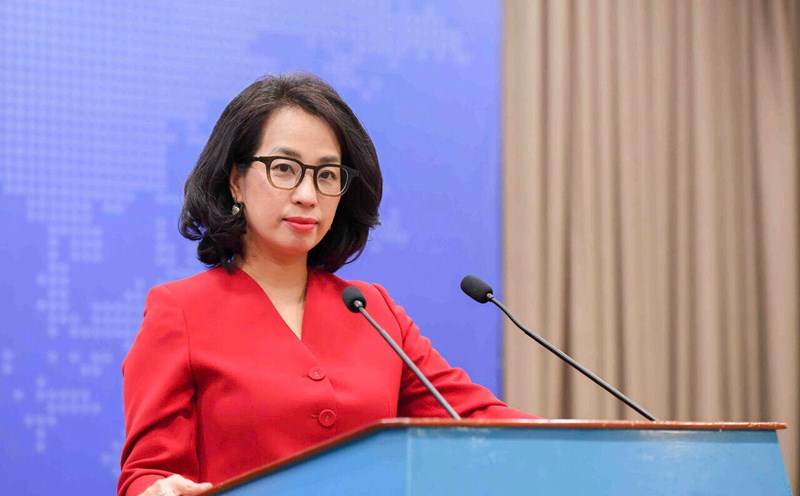On the afternoon of June 20, in Hanoi, the Ministry of Foreign Affairs in coordination with the Ministry of Finance and the Organization for Economic Cooperation and Development (OECD) organized a Workshop to announce the Vietnam Economic Report 2025 (OECD Economic Surveys: Viet Nam 2025) conducted by OECD.
The announcement workshop was attended by representatives of the Ministry of Foreign Affairs, the Ministry of Finance, ministries, branches, Economic Commissioners OECD, representatives of the Policy Advisory Council, Ambassadors and representatives of the diplomatic delegation in Hanoi, the Vietnam Economic Research Institute and a number of business associations and corporations. OECD Secretary General Mathias Cormann sent a congratulatory message to the event.
In his opening speech, the representative of the Ministry of Foreign Affairs emphasized the good cooperative relationship between Vietnam and OECD; the two sides coordinated to effectively implement the Memorandum of Understanding (MOU) between Vietnam and OECD and the Action Program for implementing MOU for the period 2022-2026.
The Vietnam Economic Report 2025 is one of the specific results, demonstrating the close and diverse cooperation between the two sides.
The representative of the Ministry of Foreign Affairs highly appreciated the efforts of the OECD team as well as the active coordination of relevant ministries and branches of Vietnam; sincerely thanked the Japanese government for sponsoring the report and Australia for accompanying Vietnam as the co-chair of the ASEAN ASEAN Program (SEARP) for the period 2022-2025 of the OECD.

Along with the Vietnam Multi-Dimensional Review Report 2020, the Vietnam Economic Report for 2023 and 2025 is an objective and valuable source of assessment for strategists, policymakers, researchers, managers in both the public and private sectors of Vietnam as well as Vietnam's development partners.
The report is a useful research document in summarizing and evaluating the implementation of the 5-year Socio-Economic Development Plan 2021-2025 and continuing to implement the 10-year Socio-Economic Development Strategy for the period 2021-2030.
The General Secretary of OECD highly appreciated Vietnam's socio-economic development achievements with rapid economic growth, deep integration into the global economy, and many important results in poverty reduction. ASEAN affirmed its support and will continue to support Vietnam to achieve high growth targets in the coming time.
The 2025 Vietnam Economic Report by OECD focuses on analyzing Vietnam's macro foundation, the impact of international integration in attracting foreign investment and international trade of Vietnam, and the prospects for developing a low-carbon economy.
The OECD also made recommendations to Vietnam to continue moving towards a more integrated, transparent, sustainable and inclusive economy.
The OECD's recommendations focus on effectively using macroeconomic tools towards a balanced fiscal policy, expanding the tax base; continuing to strengthen the monetary system, credit and interest rate policies, and allocate resources appropriately; solutions to improve the effectiveness of the social welfare system on wages, healthcare, education and promote the systematization of the economic and informal labor sector; promote sustainable development through the emission trading system, develop renewable energy; lessons from international experience and some specific measures to improve the effectiveness of attracting high-quality investment associated with improving domestic capacity, protecting intellectual property rights, improving human resource quality...
The workshop also included a discussion session between representatives of OECD, Chief Economist of ADB Bank Vietnam, Deputy General Director of Deloitte Vietnam, Director of the Tony Blair Institute for Global Change Program in Vietnam.
Speakers focused on discussing solutions to achieve the double-digit economic growth target, attract high-quality FDI in conjunction with the domestic economic sector, reform institutions and good governance to improve the capacity of the public sector.











